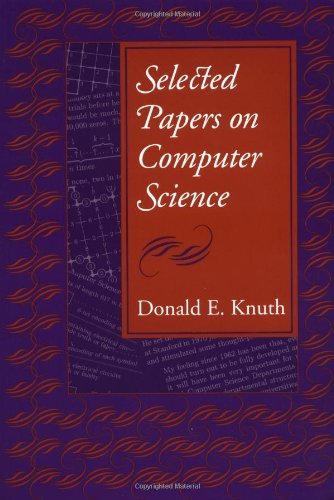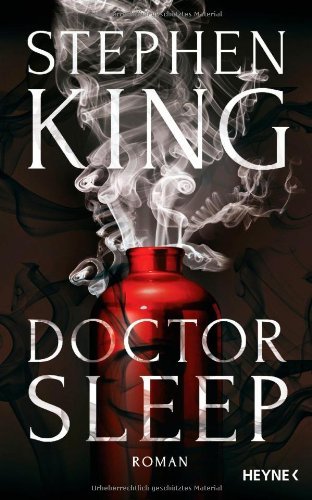Moin Moin,
having over two weeks off - with Christmas during this time - means there is a good portion of time I can use to read. I really like reading a lot - unfortunately mostly textbooks. Actually, I started to force myself to also read some different stuff what leads to the first book I am reading.
Books
Momo
When I was a kid and teeny, I hated reading. I think I read around ten books until I was eighteen. That resulted in very bad grades in school for German class. Today, as I am trained a little more, I find a lot of typos in novels and also textbooks … woot :-). But one book fascinated me and I just needed four days to read it: Momo, written by Michale Ende. I guess everybody knows this book. If not - go and get a copy! It is translated in many many languages.

Companion to the Papers of Donald Knuth
I am fascinated by Donald E. Knuth (DEK). Unfortunately I am not a mathematician (even though my interest is growing the older I get) and because of that, the theoretical stuff is really hard for me to understand. But I am still trying hard to read The Art of Computer Programming :-). I read Companion to the Papers of Donald Knuth already - I guess in three days. It consists mostly of conversations between DEK and Dikran Karaguezian. They speak about Knuth’s live and important things he thinks and did. It’s massively interesting.

Selected Papers on Computer Science
Resulting in reading the previous book, I bought Selected Papers on Computer Science from DEK. In this book he is explaining many CS aspects to a broader audience with more or less no mathematical or programming background. I started just a little bit and am looking forward to reading it. DEK’ writing style is really amazing and great.

Notes of a Dirty Old Man - Charles Bukowski
Ah - here is the first non technical book of great value. I love Bukowski. He is doing literature porn at it’s best. The book includes 36 short stories or columns he has written for a newspaper. You can’t imagine how fucked up and dirty this drinking guy is. It’s really funny and amusing to read.

The Annotated Turing
Everybody in the field of CS knows turing and knows the ACM and knows the Turing award. I stumbled about the book The Annotated Turing written by Charles Petzold (a Microsoft textbook author) while searching on amazon after Turing. I strongly recommend this book to everyone who wants to understand what a Turing machine is and how it describes a lot the basics for modern computers. The author annotates the whole paper ON COMPUTABLE NUMBERS, WITH AN APPLICATION TO THE ENTSCHEIDUNGSPROBLEM and explains what Turing meant. Petzold is giving a lot of examples of Touring machines and as an introduction some historical background to mathematics.

Doctor Sleep - Steven King
In the range of the ten books I read when I was a teen are also some Steven King books. And for sure did I see Shining not only once. So there was Doctor Sleep under the Christmas Tree - really fitting :-). It’s quite a long book with 704 pages (German edition) so I need to prepare myself to find the mood to read it. The last book in the same size I started reading … erm … one and a half years ago :-) …

Recap
Hopefully this short list is inspiring to someone or at least informative. There are quite some other books beside my bed or laying around in some preferred reading corners in our house but the list above is what I am concentrating on at the moment.
After having read many textbooks, it is becoming harder and harder to find good ones. All O’Reilly books and also Galileo Computing books (including both my books) suffer from the dictated form they have to have. I know that the authors have just little influence to this fact but it still makes them kind of boring (not including my books :-) ). Have you read one, you have read all of them beside the changed topic. The books from DEK for example are different because he is dictating the form.
My intention is not to blame any of the authors of O’Reilly or Galileo Computing books but there is a difference between textbooks and textbooks and I start to recognise that a lot. Therefor I ask the distributors to let authors write higher quality books. You should find some way’s how to do that.
EDIT: If you are interested in mathematical books check out the list in the blogpost “5 insanely great books about mathematics you should read” by kjrose.
Cheers
Andy